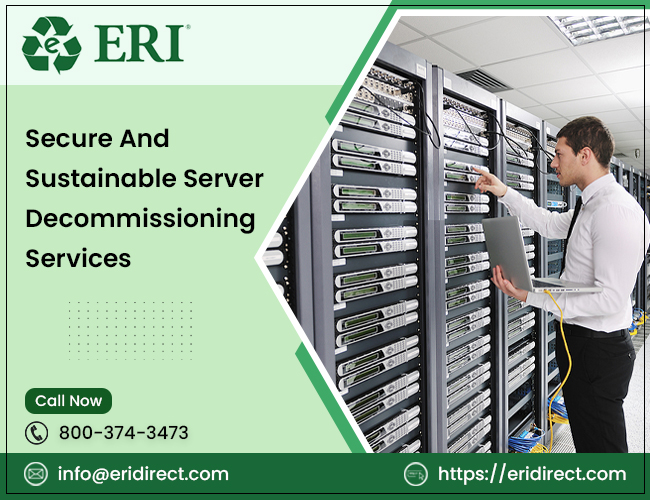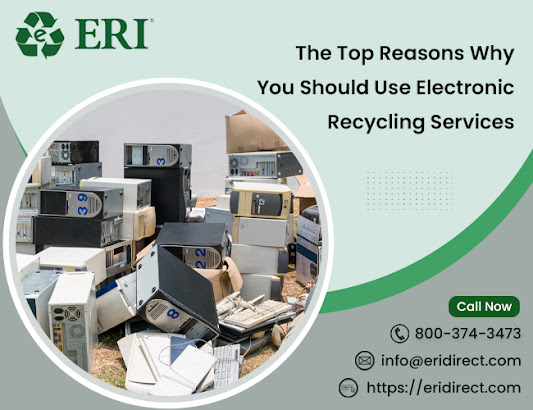Secure And Sustainable Server Decommissioning Services
In today's digital age, businesses rely heavily on their IT infrastructure, including servers, to carry out their daily operations. However, with the rapid pace of technological advancements, servers have a limited lifespan, and businesses must replace them with newer and more efficient models. When replacing a server, businesses must decommission the old one in a way that is secure, efficient, and environmentally responsible. This is where secure and sustainable server decommissioning services come in. In this blog, we will explore the importance of server decommissioning services for electronic waste data destruction and how they can help businesses.
The Importance Of Secure And Sustainable Server Decommissioning Services
Server decommissioning services are essential for businesses looking to upgrade their IT infrastructure or dispose of their old servers. The process of decommissioning servers involves securely erasing data, disassembling the server components, and responsibly disposing of the electronic waste.
Electronic waste (e-waste) has become a significant environmental concern due to the hazardous materials contained in electronic devices. Servers contain several hazardous materials, such as lead, cadmium, and mercury, that can have harmful effects on the environment if not disposed of correctly.
Secure data destruction is also a critical aspect of server decommissioning services. Servers often contain sensitive and confidential information, such as financial records, customer data, and intellectual property. Failing to destroy this information securely can lead to data breaches, which can harm a business's reputation and result in financial and legal consequences.
Lithium-ion battery recycling is another critical aspect of sustainable server decommissioning services. Lithium-ion batteries are commonly used in servers and other electronic devices, and they contain valuable materials such as cobalt, nickel, and lithium. Recycling these batteries reduces the need for mining new materials, conserves resources, and reduces the environmental impact of e-waste.
Benefits Of Secure And Sustainable Server Decommissioning Services
- Security: Secure data destruction is a critical aspect of server decommissioning services. By securely erasing data, businesses can prevent data breaches and protect their sensitive and confidential information.
- Environmental Sustainability: Sustainable server decommissioning services ensure that e-waste is disposed of responsibly, reducing the harmful impact on the environment. Recycling lithium-ion batteries also reduces the need for mining new materials, conserves resources, and reduces the environmental impact of e-waste.
- Compliance: Many industries, such as healthcare and finance, are subject to strict data privacy regulations. By using secure and sustainable server decommissioning services, businesses can ensure they are compliant with these regulations.
- Cost Savings: Secure and sustainable server decommissioning services can help businesses save money by reducing the risk of data breaches, avoiding fines for non-compliance, and maximizing the value of recycled materials.
- Assessment: The first step in the server decommissioning process is an assessment of the servers to be decommissioned. This involves identifying the make and model of the server, the age of the server, and the data stored on the server.
- Secure Data Destruction: The next step is to securely erase all data stored on the server. This involves using specialized software to overwrite the data on the hard drive multiple times to ensure that it is impossible to recover.
- Disassembly: After data destruction, the server is disassembled into its individual components, such as the motherboard, power supply, and hard drive.
- Electronic Waste Recycling: The electronic waste is then responsibly disposed of in accordance with local regulations. This involves recycling as many materials as possible, such as the copper and aluminum in the power supply and the gold and palladium in the circuit boards.
- Battery Recycling: If the server contains lithium-ion batteries, these are removed and recycled separately.


